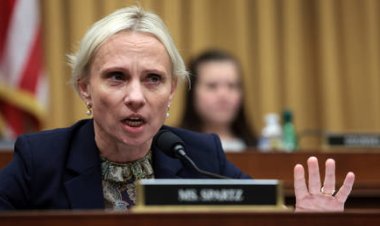The Competition Has Begun: Why Harris' Acceptance Speech Is Significant
The vice president aimed to break down the exaggerated portrayal of herself created by Trump.

The former president has labeled the current vice president as radical ("Comrade Kamala," "far more liberal than crazy Bernie Sanders"), intellectually inadequate ("stupid," "dumb"), and disingenuously ambitious, out of touch with the average American ("So I don’t know, is she Indian or she is Black?" "What happened to her laugh?...That’s the laugh of a crazy person").
On Thursday evening, spanning a concise 40 minutes, Harris confidently accepted the Democratic nomination, articulating a cogent and robust speech that effectively countered Trump’s portrayal of her.
It's difficult to envision anyone with an open mind watching her speech and concluding affirmatively about Trump’s accusations.
Harris's rise to the Democratic nominee was propelled by Joe Biden's notably weak performance at his debate with Trump less than two months earlier. Although the dynamics of an acceptance speech are inherently different, Harris's presentation was diametrically opposed.
Following the Democratic convention, Harris's address has possibly reinforced the perception from recent national and swing-state polls indicating a pivotal shift in the race. Trump now faces a critical challenge to counter Harris's momentum before their upcoming debate on September 10.
In her speech, Harris drew heavily from her prosecutorial background, which influenced both the tone and organization of her delivery.
However, she addressed her platform not just to advocate for her stance but also to defend it strategically. Harris pivoted towards a set of largely mainstream Democratic concerns—such as safeguarding abortion rights, voting rights, and Social Security and Medicare—whilst still underscoring her toughness by recounting her battles against drug cartels and predatory banks. Advocating for a middle-class tax cut, she criticized Trump’s tax reforms for favoring the wealthy.
On matters of national security, Harris emphasized her credentials and readiness to lead, ensuring no doubts linger about her capacity as the first female president to handle such responsibilities. "As vice president, I have confronted threats to our security, negotiated with foreign leaders, strengthened our alliances and engaged with our brave troops overseas," she stated. "As commander in chief, I will ensure America always has the strongest, most lethal fighting force in the world."
Addressing ongoing issues such as immigration and the Israel-Hamas conflict, Harris aimed to hold Trump accountable while seeking a balanced approach that might resonate across differing viewpoints.
Moreover, Harris used her personal story as a tool for connection—an approach aimed at deflecting critiques of her background and reinforcing her relatability. Her narrative included anecdotes about her upbringing, her community, and her deep-seated patriotism.
Preemptively tackling potential criticisms seemed a deliberate strategy on Harris's part—an endeavor to buffer any assaults on her character so that she could more effectively critique Trump.
She spared no effort in enumerating a comprehensive critique of Trump, encompassing his handling of key national issues, his legal troubles, and his foreign policy stances. She presented Trump as a self-serving leader, contrasting that with her lifelong commitment to public service: "for my entire career, I’ve only had one client: The people."
In her seamless integration of defense and offense in her speech, Harris demonstrated a political acumen that echoes the successes of past Democratic leaders and addresses the challenges perceived in Biden's prospective campaign for reelection.
Post-speech, it's evident that Trump's campaign recognizes the shift Harris has brought about and is likely strategizing their next moves.
Anna Muller for TROIB News












